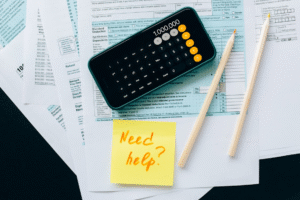Learn how to budget as a freelancer
Discover practical tips to manage your freelance income, plan for slow months, and gain financial stability while enjoying the freedom.
Tips on how to budget as a freelancer

So, you’ve joined the freelance life. Congrats! You’ve ditched the nine-to-five, kissed that morning commute goodbye, and now you get to work in your pajamas. Freedom is sweet, but let’s be honest, figuring out your finances as a freelancer can feel like trying to herd a bunch of caffeinated squirrels.
If you’re struggling to budget in this new work-from-anywhere life, you’re not alone. Freelancing gives you flexibility, but it also throws consistency out the window.
That’s why learning to budget when your income changes from month to month isn’t just helpful, it’s essential if you want to stay sane, sleep well, and keep doing what you love.
Your Income Is a Wildcard, But You Can Still Plan
The hardest part about freelancing isn’t landing your first client or figuring out how to file taxes. It’s the unpredictable income. You might invoice five clients in March and only two in April. Some people pay you late. Others disappear completely. It’s chaotic.
But here’s the good news: budgeting doesn’t mean you need to have a perfect income every month. What you do need is a realistic picture of your average monthly earnings.
Start by looking back at the past three to six months. What’s the lowest amount you’ve made? What’s the highest? What’s the average? That average, let’s call it your “safe income”, is what you’ll build your budget around.
It’s better to budget based on what you know for sure you’ll have, rather than hoping you’ll land that dream client next week.
Treat Yourself Like a Business
Even if you’re a one-person show, you’re still running a business. And businesses have expenses, responsibilities, and rainy days.
So it’s time to stop thinking like an employee and start thinking like a boss, your boss. That means separating your personal and business finances, even if you’re just using different checking accounts to keep things organized.
Every time you get paid, think like a paycheck: what’s going toward taxes, what’s staying in the business, and what’s going in your personal pocket.
Build a Buffer
Here’s something no one tells you when you start freelancing: feast or famine is real. There will be dry spells.
There will be weeks where you hear nothing but the echo of your own Slack messages. That’s why your emergency fund becomes your freelance safety net.
Even if you can only put aside a little each month, that “buffer” gives you the freedom to say no to low-paying gigs or to take a vacation without panicking. Ideally, try to build up at least 2–3 months of your average expenses.
That way, if a client ghosts you or work slows down, you’re not in full-blown stress mode. You’ve got breathing room, and that’s worth more than gold when you’re self-employed.
Budgeting Doesn’t Mean Living on Ramen
Let’s make one thing clear: budgeting isn’t about restriction, it’s about awareness. It’s about knowing what’s coming in, what’s going out, and where you actually want your money to go.
If Friday-night pizza and spontaneous Target runs bring you joy, cool, just make sure you’re accounting for them.
The trick is to be intentional. Want to take a road trip next month? Plan for it. Dreaming of upgrading your laptop? Put it in the budget.
This isn’t about cutting out fun, it’s about making sure your fun doesn’t come at the cost of rent. And when you nail that balance? It feels so good.
Give Yourself Grace
One last thing: this whole freelancing-budgeting thing? It’s a learning curve. You will mess up sometimes. You’ll undercharge, overspend, or forget to save for taxes (ugh, been there). But the goal isn’t perfection, it’s progress.
Every time you sit down and look at your finances, you’re taking control. Every time you resist the urge to blow your whole check on sushi or remember to set aside a little for next month’s bills, you’re building something strong. It’s not always easy, but it’s worth it.
So go ahead, take a deep breath, open up your bank app, and start getting friendly with your finances. Future you will be so glad you did.






